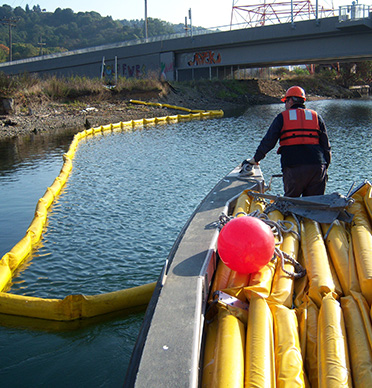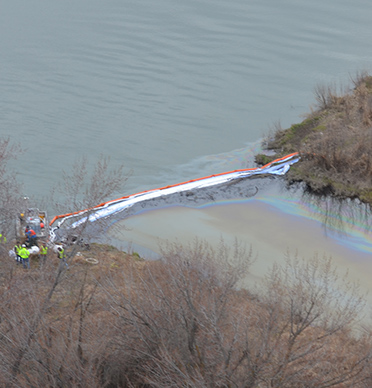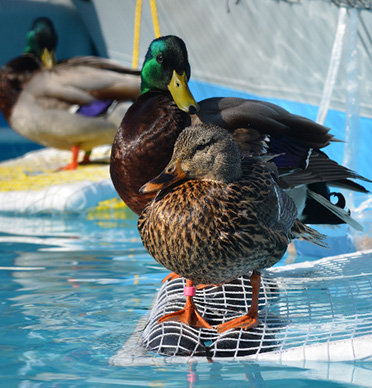Spill preparedness & response
Preventing spills is always our first goal, but despite our efforts, spills still happen. The goal of our spill preparedness work is to reduce environmental impacts of spills. We require oil handlers in Washington to be ready for a rapid, aggressive, and well-coordinated response to spills. We also require those responsible for spills to compensate the state for spill damages by restoring natural resources.
Preparing for spills
We have an effective regulatory program that requires oil handlers to be prepared to respond if they have an oil spill. Preparing for oil spills reduces harm to people, the environment, the economy, and helps protect cultural and historical resources from damages.We require oil-handling facilities, pipelines, railroads, and vessels to have oil spill contingency plans. We also require contingency plan holders to hold oil spill drills to practice using their plans. We develop locally tailored geographic response plans for areas around the state to protect sensitive local resources.
Preparedness
We require contingency plan holders to practice their plans with oil spill drills. Sometimes these drills are tabletop exercises, where coordination of personnel and information is the focus. Other drills require the deployment of equipment to ensure equipment is functional and staff know how to use it.
Learn more about how our state prepares for oil spills
Responding to spills
We are committed to rapid, aggressive, and well-coordinated responses. We respond 24 hours a day, seven days a week to spills that pose an immediate threat to public health and the environment. We strive to minimize spill impacts and also to provide timely information about current incidents. We also work to restore publicly owned resources injured as a result of spills.
We respond to incidents involving oil and hazardous materials that may harm Washington’s environment, public health, safety, and economy. We are designated as the State-On-Scene Coordinator for oil spills that get into Washington's water. Our response teams are based in Bellingham, Bellevue, Olympia, Vancouver, Union Gap, and Spokane.
Response
We have equipment staged around the state to make spill response faster. When responding to a spill, our goals are to protect human safety and minimize damage to the environment. To achieve these goals, we work closely with other agencies, tribes, and responsible parties.
Learn more about how we respond to spills
Restoring resources after spills
Anyone responsible for spilling oil into state waters is liable for damages resulting from injuries to publicly owned natural, cultural and historic, and economic resources. We have a process for determining damages and restoring resources in partnership with other federal, state and local agencies, and tribes.We have a Resource Damage Assessment committee that meets to determine damages from spills. Those responsible for spills can directly fund restoration projects, or they can deposit money into the Coastal Protection Fund. This fund awards grants to natural resource restoration projects.
Restoration
Money collected from damage assessments is deposited into the Coastal Protection Fund, which is used to pay for restoration projects. Funds may also be allocated for research and development in the causes, effects, and removal of pollution caused by the discharge of oil.
Learn more about natural resource damage assessment and restoration
Related links
Contact information
Matt Bissell
Preparedness Section Manager
matt.bissell@ecy.wa.gov
360-280-7061
David Byers
Response Section Manager
david.byers@ecy.wa.gov
360-790-6899




